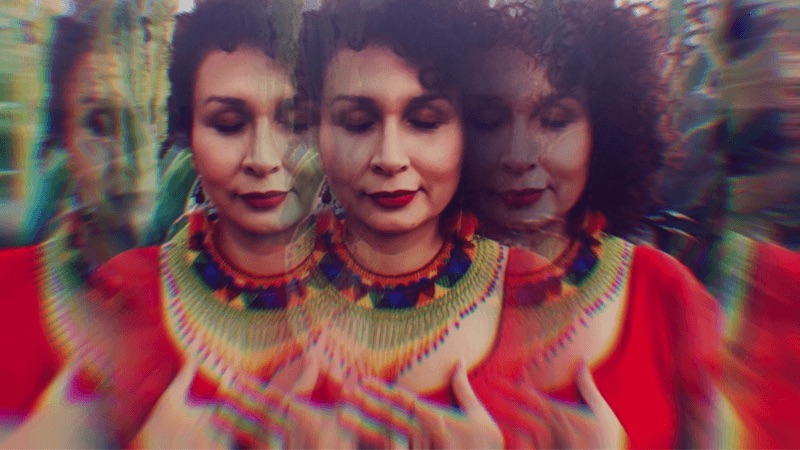
“I am conditioning myself every day to be in the practice of receiving because we are simultaneously healing ancestral trauma, generational trauma, so many things that have happened in our lineage where things got taken away,” says Esalen faculty and fifth-generation Peruvian medicine woman Xochitl Ashe.
In anticipation of her return to Esalen this August, we chatted with Xochitl about earth medicine and everyday rituals — and asked her to elaborate on the core tenet of the ancient Andean philosophy: Ayni, the practice of living in sacred reciprocity.
“I always say, I can explain it in a few words, but, really, come to my workshop because we spend a whole three days talking about the — I won't even call it a concept — but this lifestyle of ayni. A way of being that can powerfully empower and increase your joy in life.”
Read on for a glimpse of the tradition of ayni.
Sacred reciprocity is a concept from the Andean tradition of Peru. Ayni in Quechua translates to “sacred reciprocity.” Every single mystical tradition has their code of living. We have the Ten Commandments and many, many other codes. If you do this and this and this, you will live a prosperous, happy life. And my elders say, You know what? Just learn one thing. If you learn one thing and you can apply it in your life, your life will be so beautiful. That is sacred reciprocity — Whenever we receive, we also give, and this applies to our relationship with nature first. Even when we take a flower or food from the ground, we never just take it as if it belongs to us. We take it as if it is a gift for us.
In that way, we also take it with great gratitude, an attitude of gratitude. When we take something from the land, we also give back to the land. Just as this applies to the land, it applies to people. The biggest problems in relationships occur when you don't feel seen, heard, or understood because you are not receiving and you’re overgiving. Relationships don't work when you are not in ayni.
I always say, “Raise your hands if you are an overgiver!” And usually, l seventy-five percent of the room raises their hands! We’ve been taught this. There’s a saying constantly drilled into your head: It's better to give than to receive. And it's proven that that's not really true. People say, Well, I'm super depleted. I'm exhausted. I'm really unhappy in my relationships. I feel like I give, give, give, and I don't get back. I'm not getting my needs met.
This is a clear sign that these relationships are not in sacred reciprocity. Sometimes, it's because we haven't learned to give but we haven't learned to receive. Sometimes, we have learned to take, but we haven't learned to give. Once we understand that life — like our relationship with earth, our relationship to our community, even our relationship with our prosperity and abundance and our health — works well when we are in reciprocity. That really just shifts everything.
It's like energetic circulation. Anything that's not circulating and moving — giving and receiving, giving and receiving — it's a pond where the water is now still. Things start dying. There has to be movement all at all times in life for life to work.
We can explain it in so many ways, and that's why our elders say like, there are so many teachings that we can give you, but if you can really just focus on this one teaching, and not just talking about it but living it fully, integrating it into every single part of your life, your life will be a joyous one.
I like to think about this when I go into nature, whether on a hike, in the ocean, to a beach, or a river. These are very sacred places to us. Nature has always been our personal church. And so, little simple things: I always have birdseed in my car, always, always, always, always. I have a little pouch for when I walk. I'll say hello, and I'll leave some birdseed. If the birds don't eat it, the squirrels will love it. If the squirrels don't eat it, there will be ants. At some point, the birds that ate the seeds will die, and then the earth will receive this offering. You show up with an offering to these sacred natural places.
If there is a park where you walk your dog and you go every day, show up with some birdseed and you can tell — like the birds already know you're coming. Suddenly, you start developing a different relationship with nature. You start becoming friends with it because you've shown up with Ayni — with a gift every time you arrive. And every little animal in that park, in that beautiful natural space, is going to start giving you gifts — which you might not understand. You're like, Okay, is that bird just, like, following me? Or it might even be like a dream that you have. Or you were confused and now you have clarity. It just happens like that. And that's just such a simple offering, you know? Just birdseed. It really is about making it an everyday practice. And it's so powerful and fun.
Having a practice of gratitude is a practice of Ayni. I always give my gratitude as soon as I wake up because it is training. I have learned and noticed from working with thousands of people through my life in this healing capacity that one of the major blocks or challenges for us is so many of us grew up in homes where parents didn't have the capacity to give, and that created children [feeling] perhaps not deserving. These are very primal belief systems that we are healing as a human race…so practicing and training myself to remember, it's a remembering we were born with — knowing that we were always, always deserving. I'll show you. I even have it written.
With that, Xochitl lifts her post-it note to reveal the hand-written words, “I deserve, I allow, I receive.”
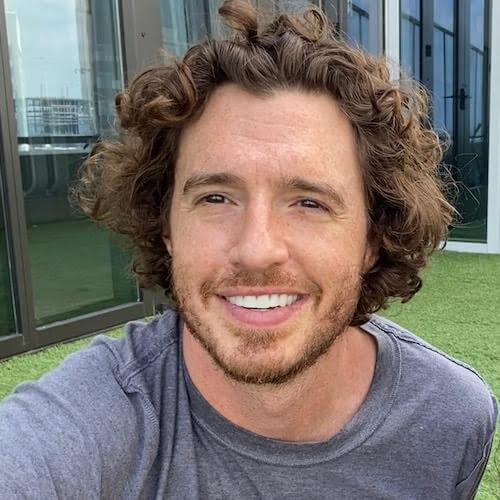
“Remembering to be as self compassionate as I can and praying to the divine that we're all a part of.”
–Aaron
“Prayer, reading, meditation, walking.”
–Karen
“Erratically — which is an ongoing stream of practice to find peace.”
–Charles
“Try on a daily basis to be kind to myself and to realize that making mistakes is a part of the human condition. Learning from our mistakes is a journey. But it starts with compassion and caring. First for oneself.”
–Steve
“Physically: aerobic exercise, volleyball, ice hockey, cycling, sailing. Emotionally: unfortunately I have to work to ‘not care’ about people or situations which may end painfully. Along the lines of ‘attachment is the source of suffering’, so best to avoid it or limit its scope. Sad though because it could also be the source of great joy. Is it worth the risk?“
–Rainer
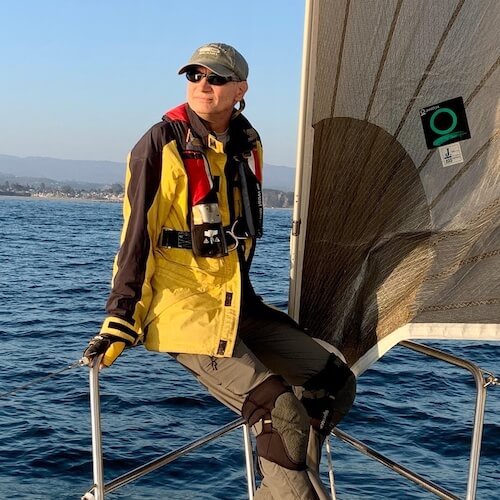

“It's time for my heart to be nurtured on one level yet contained on another. To go easy on me and to allow my feelings to be validated, not judged harshly. On the other hand, to let the heart rule with equanimity and not lead the mind and body around like a master.”
–Suzanne
“I spend time thinking of everything I am grateful for, and I try to develop my ability to express compassion for myself and others without reservation. I take time to do the things I need to do to keep myself healthy and happy. This includes taking experiential workshops, fostering relationships, and participating within groups which have a similar interest to become a more compassionate and fulfilled being.“
–Peter
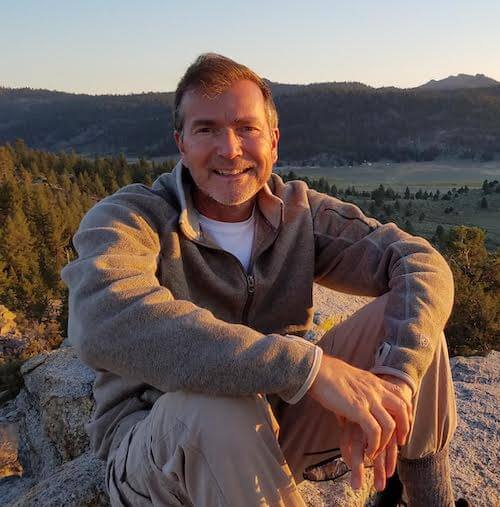
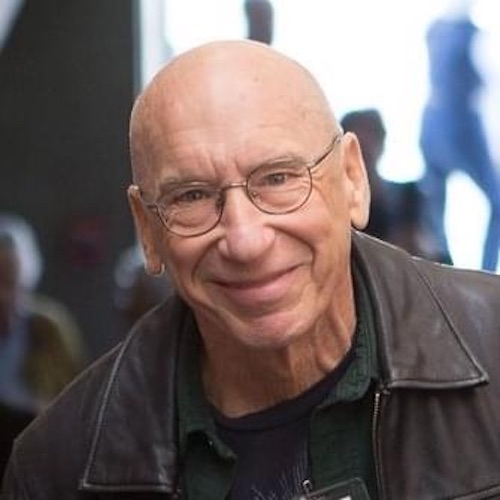
“Self-forgiveness for my own judgments. And oh yeah, coming to Esalen.”
–David B.
“Hmm, this is a tough one! I guess I take care of my heart through fostering relationships with people I feel connected to. Spending quality time with them (whether we're on the phone, through messages/letters, on Zoom, or in-person). Being there for them, listening to them, sharing what's going on with me, my struggles and my successes... like we do in the Esalen weekly Friends of Esalen Zoom sessions!”
–Lori

“I remind myself in many ways of the fact that " Love is all there is!" LOVE is the prize and this one precious life is the stage we get to learn our lessons. I get out into nature, hike, camp, river kayak, fly fish, garden, I create, I dance (not enough!), and I remain grateful for each day, each breath, each moment. Being in the moment, awake, and remembering the gift of life and my feeling of gratitude for all of creation.”
–Steven
“My physical heart by limiting stress and eating a heart-healthy diet. My emotional heart by staying in love with the world and by knowing that all disappointment and loss will pass.“
–David Z.
Today, September 29, is World Heart Day. Strike up a conversation with your own heart and as you feel comfortable, encourage others to do the same. As part of our own transformations and self-care, we sometimes ask for others to illuminate and enliven our hearts or speak our love language.
What if we could do this for ourselves too, even if just for today… or to start a heart practice, forever?
Xochitl Ashe will teach Ancestral Plant Medicine on August 18–20 and Life as a Ceremony: South American Indigenous Wisdom for Healing and Connecting with the Earth on August 21–25 and will return to Esalen for September’s Healing Waters and the Ecology of Motion, a 5Rhythms® and Indigenous Plant Medicine Workshop with Douglas Drummond and Guest Musician Nick Ayers.

“I am conditioning myself every day to be in the practice of receiving because we are simultaneously healing ancestral trauma, generational trauma, so many things that have happened in our lineage where things got taken away,” says Esalen faculty and fifth-generation Peruvian medicine woman Xochitl Ashe.
In anticipation of her return to Esalen this August, we chatted with Xochitl about earth medicine and everyday rituals — and asked her to elaborate on the core tenet of the ancient Andean philosophy: Ayni, the practice of living in sacred reciprocity.
“I always say, I can explain it in a few words, but, really, come to my workshop because we spend a whole three days talking about the — I won't even call it a concept — but this lifestyle of ayni. A way of being that can powerfully empower and increase your joy in life.”
Read on for a glimpse of the tradition of ayni.
Sacred reciprocity is a concept from the Andean tradition of Peru. Ayni in Quechua translates to “sacred reciprocity.” Every single mystical tradition has their code of living. We have the Ten Commandments and many, many other codes. If you do this and this and this, you will live a prosperous, happy life. And my elders say, You know what? Just learn one thing. If you learn one thing and you can apply it in your life, your life will be so beautiful. That is sacred reciprocity — Whenever we receive, we also give, and this applies to our relationship with nature first. Even when we take a flower or food from the ground, we never just take it as if it belongs to us. We take it as if it is a gift for us.
In that way, we also take it with great gratitude, an attitude of gratitude. When we take something from the land, we also give back to the land. Just as this applies to the land, it applies to people. The biggest problems in relationships occur when you don't feel seen, heard, or understood because you are not receiving and you’re overgiving. Relationships don't work when you are not in ayni.
I always say, “Raise your hands if you are an overgiver!” And usually, l seventy-five percent of the room raises their hands! We’ve been taught this. There’s a saying constantly drilled into your head: It's better to give than to receive. And it's proven that that's not really true. People say, Well, I'm super depleted. I'm exhausted. I'm really unhappy in my relationships. I feel like I give, give, give, and I don't get back. I'm not getting my needs met.
This is a clear sign that these relationships are not in sacred reciprocity. Sometimes, it's because we haven't learned to give but we haven't learned to receive. Sometimes, we have learned to take, but we haven't learned to give. Once we understand that life — like our relationship with earth, our relationship to our community, even our relationship with our prosperity and abundance and our health — works well when we are in reciprocity. That really just shifts everything.
It's like energetic circulation. Anything that's not circulating and moving — giving and receiving, giving and receiving — it's a pond where the water is now still. Things start dying. There has to be movement all at all times in life for life to work.
We can explain it in so many ways, and that's why our elders say like, there are so many teachings that we can give you, but if you can really just focus on this one teaching, and not just talking about it but living it fully, integrating it into every single part of your life, your life will be a joyous one.
I like to think about this when I go into nature, whether on a hike, in the ocean, to a beach, or a river. These are very sacred places to us. Nature has always been our personal church. And so, little simple things: I always have birdseed in my car, always, always, always, always. I have a little pouch for when I walk. I'll say hello, and I'll leave some birdseed. If the birds don't eat it, the squirrels will love it. If the squirrels don't eat it, there will be ants. At some point, the birds that ate the seeds will die, and then the earth will receive this offering. You show up with an offering to these sacred natural places.
If there is a park where you walk your dog and you go every day, show up with some birdseed and you can tell — like the birds already know you're coming. Suddenly, you start developing a different relationship with nature. You start becoming friends with it because you've shown up with Ayni — with a gift every time you arrive. And every little animal in that park, in that beautiful natural space, is going to start giving you gifts — which you might not understand. You're like, Okay, is that bird just, like, following me? Or it might even be like a dream that you have. Or you were confused and now you have clarity. It just happens like that. And that's just such a simple offering, you know? Just birdseed. It really is about making it an everyday practice. And it's so powerful and fun.
Having a practice of gratitude is a practice of Ayni. I always give my gratitude as soon as I wake up because it is training. I have learned and noticed from working with thousands of people through my life in this healing capacity that one of the major blocks or challenges for us is so many of us grew up in homes where parents didn't have the capacity to give, and that created children [feeling] perhaps not deserving. These are very primal belief systems that we are healing as a human race…so practicing and training myself to remember, it's a remembering we were born with — knowing that we were always, always deserving. I'll show you. I even have it written.
With that, Xochitl lifts her post-it note to reveal the hand-written words, “I deserve, I allow, I receive.”

“Remembering to be as self compassionate as I can and praying to the divine that we're all a part of.”
–Aaron
“Prayer, reading, meditation, walking.”
–Karen
“Erratically — which is an ongoing stream of practice to find peace.”
–Charles
“Try on a daily basis to be kind to myself and to realize that making mistakes is a part of the human condition. Learning from our mistakes is a journey. But it starts with compassion and caring. First for oneself.”
–Steve
“Physically: aerobic exercise, volleyball, ice hockey, cycling, sailing. Emotionally: unfortunately I have to work to ‘not care’ about people or situations which may end painfully. Along the lines of ‘attachment is the source of suffering’, so best to avoid it or limit its scope. Sad though because it could also be the source of great joy. Is it worth the risk?“
–Rainer


“It's time for my heart to be nurtured on one level yet contained on another. To go easy on me and to allow my feelings to be validated, not judged harshly. On the other hand, to let the heart rule with equanimity and not lead the mind and body around like a master.”
–Suzanne
“I spend time thinking of everything I am grateful for, and I try to develop my ability to express compassion for myself and others without reservation. I take time to do the things I need to do to keep myself healthy and happy. This includes taking experiential workshops, fostering relationships, and participating within groups which have a similar interest to become a more compassionate and fulfilled being.“
–Peter


“Self-forgiveness for my own judgments. And oh yeah, coming to Esalen.”
–David B.
“Hmm, this is a tough one! I guess I take care of my heart through fostering relationships with people I feel connected to. Spending quality time with them (whether we're on the phone, through messages/letters, on Zoom, or in-person). Being there for them, listening to them, sharing what's going on with me, my struggles and my successes... like we do in the Esalen weekly Friends of Esalen Zoom sessions!”
–Lori

“I remind myself in many ways of the fact that " Love is all there is!" LOVE is the prize and this one precious life is the stage we get to learn our lessons. I get out into nature, hike, camp, river kayak, fly fish, garden, I create, I dance (not enough!), and I remain grateful for each day, each breath, each moment. Being in the moment, awake, and remembering the gift of life and my feeling of gratitude for all of creation.”
–Steven
“My physical heart by limiting stress and eating a heart-healthy diet. My emotional heart by staying in love with the world and by knowing that all disappointment and loss will pass.“
–David Z.
Today, September 29, is World Heart Day. Strike up a conversation with your own heart and as you feel comfortable, encourage others to do the same. As part of our own transformations and self-care, we sometimes ask for others to illuminate and enliven our hearts or speak our love language.
What if we could do this for ourselves too, even if just for today… or to start a heart practice, forever?
Xochitl Ashe will teach Ancestral Plant Medicine on August 18–20 and Life as a Ceremony: South American Indigenous Wisdom for Healing and Connecting with the Earth on August 21–25 and will return to Esalen for September’s Healing Waters and the Ecology of Motion, a 5Rhythms® and Indigenous Plant Medicine Workshop with Douglas Drummond and Guest Musician Nick Ayers.

“I am conditioning myself every day to be in the practice of receiving because we are simultaneously healing ancestral trauma, generational trauma, so many things that have happened in our lineage where things got taken away,” says Esalen faculty and fifth-generation Peruvian medicine woman Xochitl Ashe.
In anticipation of her return to Esalen this August, we chatted with Xochitl about earth medicine and everyday rituals — and asked her to elaborate on the core tenet of the ancient Andean philosophy: Ayni, the practice of living in sacred reciprocity.
“I always say, I can explain it in a few words, but, really, come to my workshop because we spend a whole three days talking about the — I won't even call it a concept — but this lifestyle of ayni. A way of being that can powerfully empower and increase your joy in life.”
Read on for a glimpse of the tradition of ayni.
Sacred reciprocity is a concept from the Andean tradition of Peru. Ayni in Quechua translates to “sacred reciprocity.” Every single mystical tradition has their code of living. We have the Ten Commandments and many, many other codes. If you do this and this and this, you will live a prosperous, happy life. And my elders say, You know what? Just learn one thing. If you learn one thing and you can apply it in your life, your life will be so beautiful. That is sacred reciprocity — Whenever we receive, we also give, and this applies to our relationship with nature first. Even when we take a flower or food from the ground, we never just take it as if it belongs to us. We take it as if it is a gift for us.
In that way, we also take it with great gratitude, an attitude of gratitude. When we take something from the land, we also give back to the land. Just as this applies to the land, it applies to people. The biggest problems in relationships occur when you don't feel seen, heard, or understood because you are not receiving and you’re overgiving. Relationships don't work when you are not in ayni.
I always say, “Raise your hands if you are an overgiver!” And usually, l seventy-five percent of the room raises their hands! We’ve been taught this. There’s a saying constantly drilled into your head: It's better to give than to receive. And it's proven that that's not really true. People say, Well, I'm super depleted. I'm exhausted. I'm really unhappy in my relationships. I feel like I give, give, give, and I don't get back. I'm not getting my needs met.
This is a clear sign that these relationships are not in sacred reciprocity. Sometimes, it's because we haven't learned to give but we haven't learned to receive. Sometimes, we have learned to take, but we haven't learned to give. Once we understand that life — like our relationship with earth, our relationship to our community, even our relationship with our prosperity and abundance and our health — works well when we are in reciprocity. That really just shifts everything.
It's like energetic circulation. Anything that's not circulating and moving — giving and receiving, giving and receiving — it's a pond where the water is now still. Things start dying. There has to be movement all at all times in life for life to work.
We can explain it in so many ways, and that's why our elders say like, there are so many teachings that we can give you, but if you can really just focus on this one teaching, and not just talking about it but living it fully, integrating it into every single part of your life, your life will be a joyous one.
I like to think about this when I go into nature, whether on a hike, in the ocean, to a beach, or a river. These are very sacred places to us. Nature has always been our personal church. And so, little simple things: I always have birdseed in my car, always, always, always, always. I have a little pouch for when I walk. I'll say hello, and I'll leave some birdseed. If the birds don't eat it, the squirrels will love it. If the squirrels don't eat it, there will be ants. At some point, the birds that ate the seeds will die, and then the earth will receive this offering. You show up with an offering to these sacred natural places.
If there is a park where you walk your dog and you go every day, show up with some birdseed and you can tell — like the birds already know you're coming. Suddenly, you start developing a different relationship with nature. You start becoming friends with it because you've shown up with Ayni — with a gift every time you arrive. And every little animal in that park, in that beautiful natural space, is going to start giving you gifts — which you might not understand. You're like, Okay, is that bird just, like, following me? Or it might even be like a dream that you have. Or you were confused and now you have clarity. It just happens like that. And that's just such a simple offering, you know? Just birdseed. It really is about making it an everyday practice. And it's so powerful and fun.
Having a practice of gratitude is a practice of Ayni. I always give my gratitude as soon as I wake up because it is training. I have learned and noticed from working with thousands of people through my life in this healing capacity that one of the major blocks or challenges for us is so many of us grew up in homes where parents didn't have the capacity to give, and that created children [feeling] perhaps not deserving. These are very primal belief systems that we are healing as a human race…so practicing and training myself to remember, it's a remembering we were born with — knowing that we were always, always deserving. I'll show you. I even have it written.
With that, Xochitl lifts her post-it note to reveal the hand-written words, “I deserve, I allow, I receive.”

“Remembering to be as self compassionate as I can and praying to the divine that we're all a part of.”
–Aaron
“Prayer, reading, meditation, walking.”
–Karen
“Erratically — which is an ongoing stream of practice to find peace.”
–Charles
“Try on a daily basis to be kind to myself and to realize that making mistakes is a part of the human condition. Learning from our mistakes is a journey. But it starts with compassion and caring. First for oneself.”
–Steve
“Physically: aerobic exercise, volleyball, ice hockey, cycling, sailing. Emotionally: unfortunately I have to work to ‘not care’ about people or situations which may end painfully. Along the lines of ‘attachment is the source of suffering’, so best to avoid it or limit its scope. Sad though because it could also be the source of great joy. Is it worth the risk?“
–Rainer


“It's time for my heart to be nurtured on one level yet contained on another. To go easy on me and to allow my feelings to be validated, not judged harshly. On the other hand, to let the heart rule with equanimity and not lead the mind and body around like a master.”
–Suzanne
“I spend time thinking of everything I am grateful for, and I try to develop my ability to express compassion for myself and others without reservation. I take time to do the things I need to do to keep myself healthy and happy. This includes taking experiential workshops, fostering relationships, and participating within groups which have a similar interest to become a more compassionate and fulfilled being.“
–Peter


“Self-forgiveness for my own judgments. And oh yeah, coming to Esalen.”
–David B.
“Hmm, this is a tough one! I guess I take care of my heart through fostering relationships with people I feel connected to. Spending quality time with them (whether we're on the phone, through messages/letters, on Zoom, or in-person). Being there for them, listening to them, sharing what's going on with me, my struggles and my successes... like we do in the Esalen weekly Friends of Esalen Zoom sessions!”
–Lori

“I remind myself in many ways of the fact that " Love is all there is!" LOVE is the prize and this one precious life is the stage we get to learn our lessons. I get out into nature, hike, camp, river kayak, fly fish, garden, I create, I dance (not enough!), and I remain grateful for each day, each breath, each moment. Being in the moment, awake, and remembering the gift of life and my feeling of gratitude for all of creation.”
–Steven
“My physical heart by limiting stress and eating a heart-healthy diet. My emotional heart by staying in love with the world and by knowing that all disappointment and loss will pass.“
–David Z.
Today, September 29, is World Heart Day. Strike up a conversation with your own heart and as you feel comfortable, encourage others to do the same. As part of our own transformations and self-care, we sometimes ask for others to illuminate and enliven our hearts or speak our love language.
What if we could do this for ourselves too, even if just for today… or to start a heart practice, forever?
Xochitl Ashe will teach Ancestral Plant Medicine on August 18–20 and Life as a Ceremony: South American Indigenous Wisdom for Healing and Connecting with the Earth on August 21–25 and will return to Esalen for September’s Healing Waters and the Ecology of Motion, a 5Rhythms® and Indigenous Plant Medicine Workshop with Douglas Drummond and Guest Musician Nick Ayers.